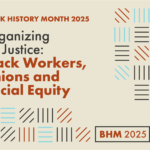
It’s now more than 40 years since the Royal Commission on the Status of Women first called for a national child care program. But although most mothers of young children now work outside the home, Canada still has no national child care policy. Without federal financing and leadership and with widely divergent provincial/territorial programs, high quality affordable child care is a scarce resource in most of Canada. Today, many young families across Canada face equity, access and quality issues very much like those experienced by their parents and grandparents.
Immediately upon becoming Prime Minister in 2006, Stephen Harper cancelled agreements with all provinces and territories that were intended to form the basis for Canada’s first national child care program — together with the federal dollars that went with them. His government “replaced” the long-awaited national program with a $100 monthly cheque-in-the-mailbox for families with children aged 0-6 years. These cheques add up to a hefty public expenditure — $2.5 billion a year, now topping $15 billion in total — with no tangible result.
In 2008, Canada ranked at the very bottom on quality and access in a UNICEF study of 25 countries.
What we all gain?
All Canadians gain from quality child care in multiple ways.
Children gain – High quality child care provides the intellectual and social simulation that promotes cognitive development and social competence, as well as a good quality of life.
Families gain – Child care supports parents going to school, training or working. It helps them balance work and family while helping provide a route out of poverty for low income families.
Women gain – Reliable child care is fundamental for women – it is “the ramp that provides equal access to the workforce for mothers1”. Most Canadian mothers with young children are in the labour force; in 2012, 69.7% with a 0-2 year olds, 76.6% with a 3-5 year olds and 84% with a 6-15 year olds were employed.
The economy gains – A Quebec study showed that each $100 public investment in child care yielded tax revenues of $104 to Quebec and $43 to the federal government. A Canadian study found that each public dollar spent on child care returned $2.54 in short-and long-term benefits to society and was a top economic stimulus.
We all gain – Today many people are concerned by data that shows that Canada is becoming a more unequal society, with increasing inequality between younger and older Canadians, between races, social classes, and between men and women. The idea that quality accessible child care has a key role to play in creating a more equal Canada is now part of the public and political discussion about the connections between health and wealth, public services and social justice, economics and democracy, taxation and fairness.
We all gain if child care is high quality – Quality very much matters in child care. This is a solid conclusion from three decades of research. High quality early childhood programs provide children with many kinds of social and learning benefits but can be ineffective or even negative if quality is mediocre or poor. This is especially true for children from poorly resourced or low income homes.
We all gain from universality in child care – Today families across the economic spectrum need and want good quality early childhood programs for their children. Research shows that all children gain, not just those considered to be developmentally at risk. And experience with health, social and education programs shows that societies gain in social inclusion and general well-being from broadly inclusive, high quality universal programs ― especially if they encourage democratic participation.
Overall, research evidence and common sense show that we all stand to gain the most when child care is designed as a universal system that includes all children and families ― affluent, modest income and poor, children with disabilities and without, newcomers to Canada and those who settled generations ago, young parents and grandparents.
Can we all afford it?
Canada spends considerably less than do many other countries on early childhood education and care. Although the benchmark recommended by UNICEF is 1% of GDP, international studies show that Canada’s public spending is lowest among 14 OECD countries. Yet by international measures (such as per capita GDP), we are wealthier than many of the countries that spend much more on children and families. And when it comes to early childhood programs, some less wealthy countries spend as much as 2% of GDP, compared to Canada’s 0.3%.
High fees are one of the main barriers for parents seeking child care in Canada. The main reason that fees are too high for ordinary families is the low level of, and inconsistency of, Canada’s public child care funding. This means that staff wages (the biggest cost in a child care budget) and other expenses like food, equipment and rent are directly dependent on the ability of parents to pay. As a result, both access and quality often suffer.
Parent fees vary widely across Canada, reflecting how, and how much, different provinces/territories spend on child care. Quebec has the lowest parent fees; Quebec parents pay $7/day ($154/month) for all incomes, all ages, all forms of regulated child care. Manitoba’s and P.E.I.’s provincial governments, like Quebec’s, set parent fees: respectively $431/month and $566/month for full-day toddler care (median), while the median toddler fee in Ontario was $925. And there are huge fee ranges within some provinces too. Parents may pay $1800/month or even more in Ottawa or Vancouver!
Read the entire report..[[{“fid”:”207″,”view_mode”:”default”,”fields”:{“format”:”default”},”type”:”media”,”attributes”:{“class”:”file media-element file-default”},”link_text”:”child-care-canada-scarce-2013-08-20-en.pdf”}]]





